Mental Wellbeing and Resilience Learning Community
Last Tuesday of each month from 10 a.m. - Noon
The Minnesota Department of Health leads a monthly learning opportunity for anyone who is interested in building resilience and promoting mental wellbeing.
- Learn: About effective wellbeing strategies and practical implementation steps from communities across Minnesota.
- Dream: About creating thriving communities, families and youth.
- Plan: Community and state action plans. Develop opportunities to partner with people in your community who are interested mental wellbeing and resilience.
Details: These statewide learning sessions are held online via WebEx.
Webinars spotlight innovative strategies to promote mental well-being and resilience, emphasizing community-based and community-driven initiatives. Gatherings include practice discussions, sharing similar efforts in your location, relevant research or resources, networking, and planning next steps.
Registration: See registration links for each session below.
Learning Community Resources:
Subscribe to the Mental Wellbeing and Resilience Listserv for monthly announcements.
Upcoming Learning Sessions
ABUSUA Healing Circles: A traditional approach to collective wellbeing among Black families
Tuesday, Feb. 24
10 a.m. – noon
Register

Ayolanda Bandele (she/her)
Co-founder, Embodied Education and Innovation Director
Black Family Blueprint

Mujasi Bandele (he/him)
Co-founder, Research and Curriculum Director
Black Family Blueprint
Black mental health is deeply affected by systemic stressors such as racism, economic hardship, and intergenerational trauma. Despite rising suicide rates, Black Americans remain significantly underserved and struggle to access culturally responsive care.
In 2023, Black Family Blueprint implemented a project called Afrocentric Bonding Using Somatic Understanding of Attachment (ABUSUA) in attempt to create a space to effectively address the mental health of our families. The project became a creative research-in-practice that resulted in an unconventional method of therapeutic space but does not qualify as “therapy.” ABUSUA Healing Circles, though not necessarily therapy, provide a space to merge culturally rooted wellness strategies, promotion of narrative sharing, personal and family resistance development, with access to mental health providers. Today, Black Family Blueprint is partnering with the Association for Black Psychologist to bring forth their national model of culturally grounded therapeutic modalities of healing. The session will showcase the ABUSUA project’s healing circles and foster an understanding of traditional African methods of personal sharing, affirmation, acknowledgment, collaboration, and knowledge acquisition in communal space.
Addressing educator burnout crisis through systems change
Tuesday, Mar 31
10 a.m. – noon
Register

Cheryl Holm Hansen, Ph.D. (she/her)
Co-Director
Midwest Center for School Mental Health

Mark Sander, PsyD, LP (he/him)
Co-Director
Midwest Center for School Mental Health

Aubrie Hoover, MS, RD (she/her)
Regional Manager of Behavioral and Mental Health Services
Northeast Service Cooperative
K–12 educators and school staff are facing an unprecedented mental health crisis. Nationally, they are the most burned-out profession in the U.S., with a 2022 Gallup survey reporting that 44% of school staff experience symptoms of burnout. The consequences are far-reaching: burnout negatively affects educators’ decision-making, sense of purpose, and, most critically, their relationships with students. In 2022 the Northeast Service Cooperative and Midwest Center for School Mental Health launched an initiative to build awareness across partner districts about the breadth and impact of educator burnout. Regional data gathered from 16 school districts with over 1,700 respondents, indicated even higher levels of educator burnout in Northeast Minnesota, with over 50% of educators reporting burnout. Both agencies have continued to support districts working to address school staff burnout through development of training and discussions for school staff and district leadership to identify potential root cause solutions to educator burnout. Equipped with the data and collective input, including a wide array of potential strategies, they are launching a resource guide and toolkit to support intentional policy and systems changes in schools. They will be evaluating the impact of these strategies and school change processes. Learn about the data, their insights to date, next steps, and how your district or region might begin to address educator burnout. Midwest Center for School Mental Health and Northeast Service Cooperative.
Signs of hope: What the 2025 Minnesota Student Survey tells us about youth mental wellbeing
Tuesday, Jan. 27
10 a.m. – noon
Register

Molly Meyer
Research Scientist
Children and Family Health Division, Minnesota Department of Health

Kaitlyn Traub
Adolescent Epidemiologist
Children and Family Health Division, Minnesota Department of Health
The 2025 Minnesota Student Survey reveals a promising shift in youth mental health, marking a reversal of previously declining trends in mental wellbeing among Minnesota students. Many mental health and wellbeing indicators have improved since 2022, with some measures showing gains even compared to 2019.
This webinar will explore key components of mental wellbeing captured by the survey, including positive identity, empowerment, social connections, and other protective factors that play a critical role in supporting youth mental health. Using a composite mental wellbeing measure that examines the cumulative impact of having or lacking multiple wellbeing components, learn more about how a variety of demographics and behaviors are correlated with having high levels of mental wellbeing. Specifically, participants will gain insights into statewide trends as well as differences across geography, racial identity, gender, and sexual orientation, screen time/social media use, and physical activity. The session will conclude with a discussion on how we engage youth in these conversations and embolden the use of data to strengthen youth mental health initiatives. Online resources will also be shared to directly access survey data and allow participants to share data needs, questions, and ideas for leveraging the Minnesota Student Survey.
Co-creating culturally specific resources with American Indian youth
Tuesday, Nov. 25
10 a.m. – Noon
Register to participate

Bryce Premo, (he/him/his)
Suicide Prevention Coordinator
Ain Dah Yung (Our Home) Center
Ain Dah Yung (Our Home) Center is co-creating a culturally grounded online resource hub for American Indian youth in partnership with over a dozen American Indian youth in the Minnesota metro region. Over the past six months this collaborative effort has incorporated culturally rooted youth artwork and other youth-led ideas to make sure the resource is reflective of their voices in multiple dimensions. This project was sponsored by St Paul Ramsey County Public Health and in partnership with a local American Indian design organization. The presentation will demonstrate how building cultural identity and accessible resources alongside youth can reduce risk and promote mental wellbeing in American Indian communities.
Civic engagement opportunities and mental wellbeing
Tuesday, Oct. 28
10 a.m. – Noon
Register to participate

Michelle Koffa Dormoh, MPP (she/her/hers)
Community Equity Program Manager
Wilder Foundation

Mikayla Smith, MPP (she/her/hers)
Public Policy and Community Relations Manager
Wilder Foundation
Social conditions impact mental health in significant ways, especially for those who are most marginalized. By building civic engagement skills, citizens foster both individual and community mental health by empowering people to influence social policies and build a sense of purpose, autonomy, and hope. Since 2015, the Wilder Foundation’s Civic Engagement Programs have equipped nearly 200 community members to build the skills, confidence, and connections needed to lead and influence policy. In this webinar they will provide an overview of their programs that include the Community Equity Program, the Advocacy Leadership Intensive, and the Policy Education Trainings. Each are geared towards different audiences but share the same goals – civic engagement. The Community Equity Program is a seven-month political leadership program that dives deep into understanding the Minnesota state legislature. The Advocacy Leadership Intensive is a condensed version for individuals who want to get a high-level understanding of the legislative process. And the Policy Education Trainings consist of webinars, customizable workshops, and events, for individuals and organizations to build confidence, understand key issues, and take meaningful action for change. Join us to learn how this model impacts participants and communities, and ways to get involved.
Civic engagement opportunities and mental wellbeing
Tuesday, Oct. 28
10 a.m. – Noon
Register to participate

Michelle Koffa Dormoh, MPP (she/her/hers)
Community Equity Program Manager
Wilder Foundation

Mikayla Smith, MPP (she/her/hers)
Public Policy and Community Relations Manager
Wilder Foundation
Social conditions impact mental health in significant ways, especially for those who are most marginalized. By building civic engagement skills, citizens foster both individual and community mental health by empowering people to influence social policies and build a sense of purpose, autonomy, and hope. Since 2015, the Wilder Foundation’s Civic Engagement Programs have equipped nearly 200 community members to build the skills, confidence, and connections needed to lead and influence policy. In this webinar they will provide an overview of their programs that include the Community Equity Program, the Advocacy Leadership Intensive, and the Policy Education Trainings. Each are geared towards different audiences but share the same goals – civic engagement. The Community Equity Program is a seven-month political leadership program that dives deep into understanding the Minnesota state legislature. The Advocacy Leadership Intensive is a condensed version for individuals who want to get a high-level understanding of the legislative process. And the Policy Education Trainings consist of webinars, customizable workshops, and events, for individuals and organizations to build confidence, understand key issues, and take meaningful action for change. Join us to learn how this model impacts participants and communities, and ways to get involved.
The 40-Day Project: postpartum support in community
Please note the new date: Tuesday, Oct. 7
10 a.m. – noon

Dr. Silvia Alvarez de Davila, Ph.D., CFLE
Extension Professor and Regional Educator
University of Minnesota Extension
Department of Families, Health and Wellbeing
The 40-Day Project is a a virtual platform and curriculum created to support parents in the early postpartum period, a critical time for family health and adjustment. During the postpartum period, many new parents experience isolation, stress, and untreated mental health challenges such as anxiety or depression, often without structured support for self-care. Drawing inspiration from the traditional 40-day postpartum practice common in Latinx and other cultures, this project provides culturally responsive resources in Somali, English, and Spanish. Through its website, parents and providers can access five modules with educational materials, birth stories, videos, and handouts on postpartum wellness, social connection, and self-care. A curriculum in Spanish and Somali has been piloted and is available to helping parents feel supported. To date, two cohorts have implemented; one in Spanish in Dodge Center, and one in Somali in Bloomington.
Learn more about this curriculum and how it is supporting mental wellbeing.
Measuring Community Flourishing
Tuesday, Aug. 26
10 a.m. – Noon
Register to participate

Keith Bennett, MPH (he/him/his)
Health Promotion Coordinator
Wright County Public Health
Flourishing isn’t just about individual happiness, health, purpose, and relationships—it’s also about the strength and wellbeing of our communities. Over the past decade, experts have worked to define what community wellbeing really means. In early 2024, Harvard released a new tool, the Subjective Community Wellbeing survey,—to measure how communities are doing, with a focus on factors like social connection and economic stability.
Over the past year, Wright County Public Health, in partnership with the University of Minnesota, adapted and implemented this survey to reflect local experiences while keeping its core structure. This community-driven approach is designed to guide public policy by shifting the focus from individual outcomes to the larger systems that influence wellbeing.
Join us to learn how Wright County brought this tool to life and how they plan to use it to support real, structural change.
Linking music and health providers to leverage the power of music
Tuesday, June 24, 2025
10 a.m. – Noon
Register to participate

Paige J. Erickson, MPH (she/they)
The Con Brio Initiative Creator
The Con Brio Initiative is a project that combines tenets of music education with well-being education for young people. Music-making and music education helps young people grow socially, emotionally, and artistically, and has a lasting impact across the life course. Con Brio shares skills and info via social media and print materials on topics like grounding skills, healthy communication, coping with trauma/ACEs, and injury prevention. Con Brio aims to promote collaboration and knowledge sharing between musicians and health workers as both work toward youth well-being. Attendees will leave with a greater understanding of how music-making is a tool for fostering resilience and whole health, examples of creative well-being work, and resources to incorporate these messages into your work.
Talk: Resources for conversations with adolescents about health
Tuesday, May 27
10 a.m. – Noon
Register to participate

Christopher Mehus, Ph.D., LMFT
Research Associate Professor
University of Minnesota
TALK: Toolkit for Adolescent Care is a set of resources developed for healthcare clinicians and parents. TALK provides resources and strategies for starting conversations with adolescents about a range of health topics, ranging from sleep, to substance use, to healthy relationships and sex. Attendees will leave with three practical tools they can use in their work with adolescents, including a basic communication strategy, a set of one-page talking sheets, and tips for implementing time alone (i.e., time without a parent in the room) during healthcare visits. TALK resources and trainings have been implemented all over the state of Minnesota and, in partnership with the American Academy of Pediatrics, disseminated to primary care clinicians around the country.
Youth setting an agenda for investment in mental wellness
Tuesday, April 29
10 a.m. - Noon
Register to participate
- Amelia Lynch, Benilde St. Margaret’s High School Student
- Susannah Israel, St. Louis Park High School Student
- Sullivan, St. Louis Park High School Student
- Marla Destache, Children First Administration and Operations Coordinator
- Margaret Ganyo, Children First Executive Director
Young leaders from the St. Louis Park Children First Youth for Change Coalition (Y4CC) will share their journey to identify topics and strategies to improve mental wellbeing among their peers. Starting in 2023- youth leaders evaluated measures of youth wellbeing and used a data-informed, collective impact approach to identify the issue most in need of action. They selected suicidal ideation based on Minnesota Student Survey results. Y4CC members will share the processes they used, including the Equitable Results Cycle to identify a focus population and a Root Cause Analysis to ensure a focus on key drivers that can create change in current conditions. Youth leaders will share their experience with this process and the strategies they plan to implement to address suicide ideation. Adults who worked side-by-side with Y4CC will share how they supported the youth-designed process, and the added value of youth leadership for activating community leader support. Participants will learn about strategies you can use in your community to incorporate youth decision-making to direct community investments and center systems change work. https://children-first.org/our-work/mental-wellness/
Accelerating community action to promote access to nature
Tuesday, March 25
Christian Alvarado (he/him)
Manager of Peer Learning
Children & Nature Network
Brad Bourn (he/him)
Faribault Community Leader
Executive Director
River Bend Nature Center
Nature is essential in enhancing mental health and emotional wellbeing, cognitive development, and healing from trauma in children and families. In 2023, the Children & Nature Network (C&NN), National League of Cities and KABOOM! launched Nature Everywhere Communities, an initiative to advance equitable access to nature everywhere children live, learn, and play. Based on over 10 years of supporting coalitions across the U.S., the Nature Everywhere Communities initiative helps communities research local assets and barriers, plan in alignment with shared goals, and implement local and state actions that promote nature access. Faribault, MN, joined as one of the first Nature Everywhere Accelerator Communities, working to increase green job opportunities and outdoor accessibility. Learn more about Faribault’s progress and how your community can start expanding nature access with actionable steps and support from C&NN’s Peer Learning Network through the Nature Everywhere Communities Action Challenge. Participating communities receive access to toolkits and resources like a guide on conducting a landscape scan, community engagement, equity mapping data, and opportunities to gain national recognition.
Mental health: A Hennepin County campaign on hope and connection
Tuesday, February 25
Jocelyn McQuirter (she/her/hers)
Community Engagement and Strategic Partnership Manager
Behavioral Health, Human Services Public Health, Hennepin County
Hannaan Shire (she/her/hers)
Community Engagement Intern
Behavioral Health, Human Services Public Health, Hennepin County
In 2023, Hennepin County launched a yearlong mental health awareness campaign centered on hope and making connections. The multimedia campaign titled: ‘See Mental Health’ amplified the importance of community-driven messaging and engagements to support the cultural and linguistic diversity of residents. The initiative surpassed 200M impressions (views) and one-third of the digital reach connected with individuals under the age of 24. Join this special session to learn about the design, implementation, and impact of an award-winning campaign.
Nourish and flourish conversation guides to support healthy lifestyles
Tuesday, January 28
Abby Gold, PhD, MPH, RD
Health and Nutrition Extension Specialist
University of Minnesota Department of Food Science and Nutrition
Extension Department of Family, Health and Wellbeing
Kelly Kunkel, MS, MCHES
Extension Educator and Extension Profession, Health and Nutrition
The University of Minnesota Extension partners with nine community mental health support programs (CSPs) to foster healthy lifestyle initiatives for clients and staff. During the pandemic, Extension educators implemented a multi-session education curriculum, which proved challenging for many CSP clients to fully engage. A customized approach to nutrition and healthy lifestyle education was needed. In 2022, a photovoice project involving 40 CSP clients and staff was conducted to identify essential health messages, leading to the development of seven "conversation guides" regarding food, physical activity, and their link to mental well-being. Each guide centers around a specific theme (such as physical activity and cooking at home), features a predefined discussion structure. The guides are adaptable rather than prescriptive, they include motivational interviewing techniques, and offer suggestions for opening dialogue, self-reflection, lifestyle adjustments, and goal setting. This webinar will feature the Nourish and Flourish Conversation Guides, describe their development and pilot-testing process, and then demonstrate their usefulness in community-based mental health programs.
Growing through grief: Helping children and youth deal with loss in schools

Nicole Barnes (she/her/hers)
Growing Through Grief Program Manager
Health Partners Park Nicollet

Judy A. Brown, MSW, LICSW, LSSW (she/her/hers)
Mental Health Support Services Manager
Minneapolis Public Schools
The third Thursday of November is National Children’s Grief Awareness Day. This provides an opportunity to raise awareness of the painful impact that the death of a loved one has in the life of a child, and an opportunity to make sure that children receive the supports they need. The Growing Through Grief is a unique school-based grief support program that is funded through Park Nicollet Foundation and operated through Park Nicollet Hospice Program. The program operates in 125 schools, serving over 900 students weekly through peer support groups and individual grief counseling. Growing through Grief also provides a public health population approach to crisis support for the school population when a school community experiences the death of a classmate or faculty member. Schools are also adopting this approach to other common sources of grief in a school population such as grief from community violence and ambiguous losses. Join this special session to learn about the prevalence of childhood bereavement, how children grieve developmentally, ways individuals can help, and ways systems can respond to this need.
Reimagining Black Youth Mental Health: supporting digital wellbeing among Black youth
Tuesday, October 22

Rachel Warren (she/her/hers)
Reimagine Black Youth Mental Health Coordinator
Brooklyn Bridge Alliance for Youth
The Reimagine Black Youth Mental Health Initiative is a community-led policy demonstration initiative led by the Brooklyn Bridge Alliance for Youth, in partnership with the Minnesota Department of Health. After extensive engagement with nearly 500 Black youth about policies they feel are impacting their mental health and wellbeing, six policy themes emerged including:
- Make sure Black youth are safe at all times;
- Give Black people space to create our own spaces and have our voices heard;
- Prioritize the needs of Black youth that are defined by Black youth;
- Provide more education on Black history and culture more often, including learning beyond academics;
- More Black teachers in schools;
- Change the narrative around mental health in ways that strength mental health support for Black families, address generational trauma.
Safety emerged as a top priority which includes safety online from bullying, safety in the community from gun violence, and safety in schools from racism. A policy demonstration has been crafted to address safety online that encompasses an 8-session curriculum in three schools where students will explore digital wellbeing, evaluate school cell phone policies with administration, and implement a school project. Insights and results from this experience may inform school practices and response to state legislation that requires all schools to have a cell phone policy.
Engaging Spiritual-Faith-Cultural Leaders and Healers to Promote Wellbeing
Tuesday, Sept. 24, 2024
Kim McCoy (she/her/hers)
Director of Program Management, Stratis Health
Director of Medicare Quality Improvement Organizations, Superior Health Quality Alliance
Margaret Schuster (she/her/hers)
Senior Public Health Specialist
Minneapolis Health Department
Places of worship or spiritual and cultural practices are key spaces for many people to develop their community, social connections, identity, and sense of belonging. Spirituality, faith, and cultural connectedness also offer a sense of hope and purpose for many, and their leaders are often where many people turn when dealing with life challenges. There may also be a range of conflicts for some between spiritual, faith and cultural beliefs and practices, and optimal mental well-being. Over the last year, the Community Health Improvement Partnership (CHIP) of Hennepin County – a collaborative of health and healthcare professionals – have been engaging spiritual, faith, and cultural leaders, across a broad spectrum, to elevate and affirm their role in supporting mental health. They are listening to leaders’ wisdom and experiences to understand their needs around mental health and well-being, resources and tools, and providing funding and support to lift up community-driven solutions. Together they are promoting a vision where spiritual-faith-cultural leaders and mental health and wellbeing leaders are aligned and working together to promote optimal mental wellbeing for the community.
COMET: A gentle introduction to supporting community in Minnesota
Tuesday, August 27, 2024

Mary Jo Katras, Ph.D (she/her/hers)
Program Leader, Family Resiliency Department of Family, Health and Wellbeing
University of Minnesota Extension
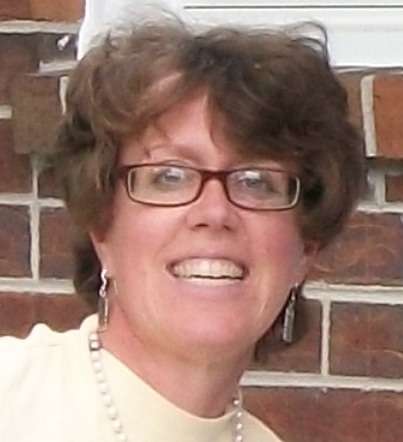
Meg Moynihan (she/her/hers)
Senior Advisor, Minnesota Department of Agriculture
Dairy Famer and Owner
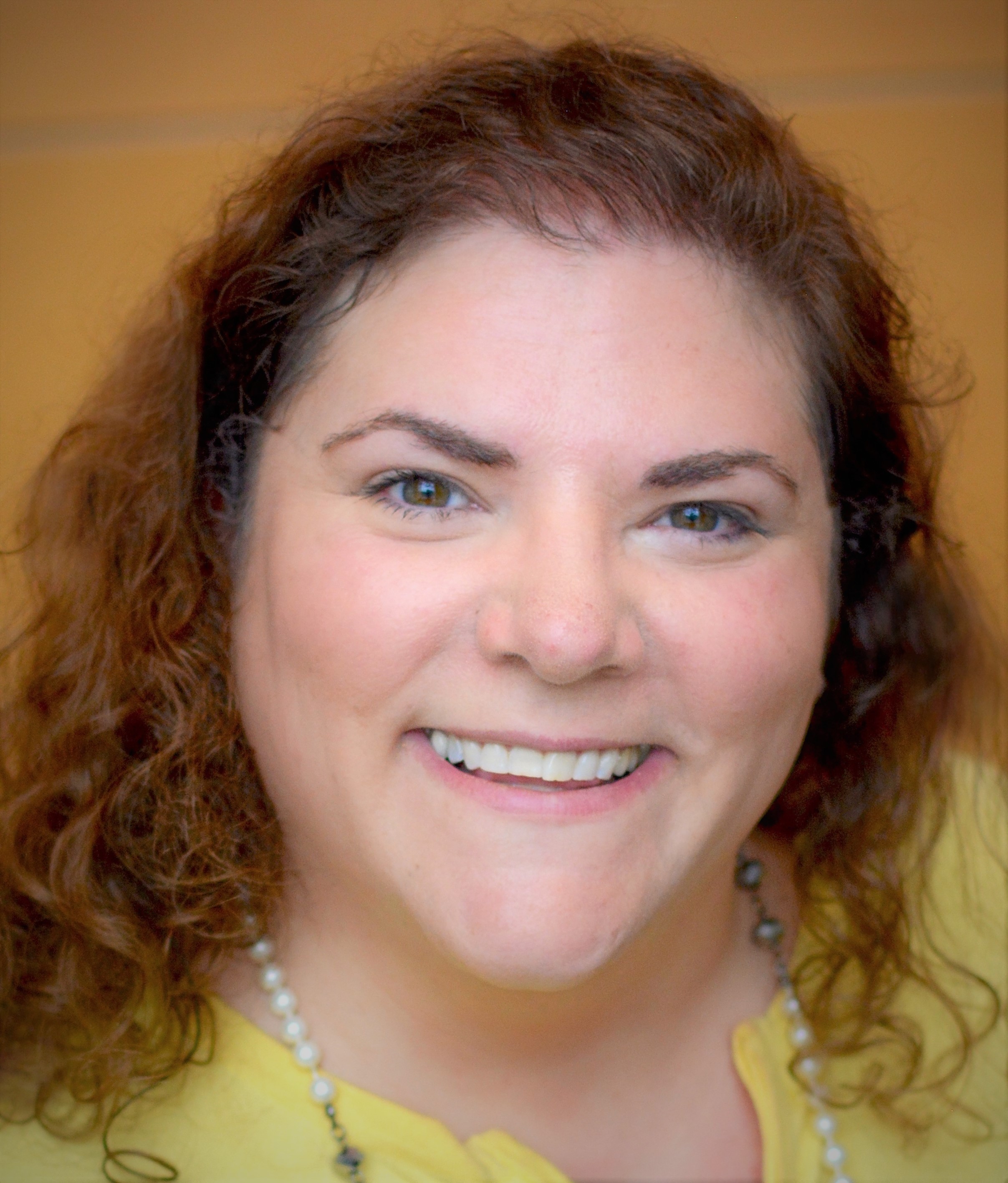
Anna Lynn, MPP (she/her/hers)
Mental Health Promotion Coordinator
Minnesota Department of Health
In support of May Mental Health Month, the University of Minnesota Extension, MN Department of Agriculture and the Department of Health joined forces to bring COMET™ to communities across Minnesota. In just two short months, this team supported training for twenty facilitators, who hosted twenty-four COMET™ trainings, reaching over 300 people during May Mental Health Month. COMET™ (Changing Our Mental and Emotional Trajectory) is a short, two-hour program that teaches simple tools to help someone who is struggling shift their mental health trajectory back to a place of wellness and away from the path toward mental health crisis. COMET™ helps people take that next step after noticing someone might be struggling. Often, we want to support our friends, neighbors, and colleagues in times of need but may not know how. COMET™ empowers us to be more prepared to support others’ mental health needs – especially before a crisis. This training doesn’t expect community members to “fix it,” but instead trains people to feel comfortable initiating a supportive and potentially emotional conversation by using a simple seven-question guide. Learn more about COMET™ and how you can become a facilitator or support others in your community to become facilitators.
Minnesota model jail practices learning community: Supporting children and families with an incarcerated parent
Tues., July 30

John Eshun, Mental Health Planner
Minnesota Department of Health
Rebecca J. Shlafer, PhD, MPH, Associate Professor
Division of General Pediatrics and Adolescent Health
University of Minnesota
On any given day, an estimated 16,000 Minnesota children have a parent in prison; thousands more have a parent incarcerated in a local jail. Parental incarceration is a powerful adverse childhood experience. Evidence suggests that one in six Minnesota youth reports a history of parental incarceration. Parent incarceration dramatically increases risks of poor school attendance, school discipline problems, lower grades, school disconnection, substance use, and mental health problems. Supporting the parent-child relationship is a key strategy for fostering resilience in children affected by incarceration.
Thanks to the Minnesota Legislature, and continued funding through the Department of Justice, the Minnesota Department of Health (MDH) and the University of Minnesota (UMN) have expanded a pilot program to 14 counties across Minnesota to help children impacted by parent incarceration. The model jail practices learning community brings together local jails and community partners to learn best practices, share resources, and reflect on how parental incarceration impacts children in their counties. With the support of the Minnesota Sherriff’s Association, work continues with county jails in Carlton, Olmsted, Ramsey, Renville, Stearns, and Sherburne, and is now launching in Brown, McLeod, Nicollet, Todd, Hennepin, St. Louis, Crow Wing, and Scott County facilities. Learn about a range of strategies underway within the model jail practices learning community which are critical for healthy child development, including some zero-cost changes and long-term policy changes such as child-preferred visiting hours that counties can make to help strengthen and maintain the parent-child relationship.
Building community and belonging through sport: the Karen Football Association
Tuesday, June 25

Kyle Johnson, Executive Director and Founder
Karen Football Association
St. Paul, Minnesota, is home to the largest Karen community in America with more than 17,000 Karen residing in the area since the early 2000s. The Karen, like many immigrants and refugees, face many challenges from financial struggles, trauma, to discrimination, and report feeling discouraged from engaging in sports. Because of urgent needs, and in some cases, cultural perspectives, sports for young girls are not always prioritized among Karen and other refugee families. Soccer is a worldwide sport and can be an outlet for youth, as well as an opportunity to build community among the families of participating youth.
The Karen Football Association (KFA) was established in 2014 and through a long learning journey, created a youth academy for ages 4 and up, to begin building a community. KFA has evolved to support pathways to college, career development, gender equity. and social-emotional skills. Above all, the KFA is creating a community and sense of belonging for athletes and their families. Learn more about this community and association’s model and how it could be a source of inspiration for other sports organizations across the state and nation.
Designing Public Space for Good: A Trauma Informed Care Approach to Designing Space
Tuesday, May 28

Melissa Jancourt, LEED-AP, CID
Principal + Founder
Work Sight
How does the design of public spaces and work experiences impact services and programs that improve employee and client sense of belonging, reduce burnout, and mitigate the impact of trauma? What is considered trauma? Hear about the redesign of the Hennepin Hub service centers, including the planning process, how staff and clients were involved, and key trauma-informed care elements that were prioritized to change behaviors. The Hennepin Hub redesign is one example of an organization that applied the principles of human centered design to work in a complex and intensive service setting.
Join us to hear about the transformational outcomes for employees and participants alike. Learn about the kinds of design process that organizations might consider, research findings and key practices that all organizations could implement to begin to design public spaces and work experiences for good outcomes for employees and program participants.
Improving Community Mental Well-being and Belonging Through Community Design Process
Tuesday, May 7

Tim Griffin, FAIA, LEED, AP
Placemaker/Urban Designer
Senior Research Fellow, University of Minnesota
Minnesota Design Center
How can we improve community mental well-being and happiness through community co-design? Learn about three very different community development projects that improved the mental well-being of local communities through human centered design process.
- Rochester: the Heart of the City project included a range of people in the redesign process and elevated mental well-being in the outcome matrix.
- Northwest Minnesota: this project explored the United Nations sustainable goals, centering well-being at the regional county scale and with a local scale project in Warren-Design for Community Regeneration.
- Investing with North Minneapolis: this project involved Northside residents and youth interns working with University of Minnesota architecture students.
All these projects used a common process and highlight the clear mental health benefit when citizens are engaged in community decisions and when people feel better about where they live. Learn about tips and resources for your community can incorporate into your design projects to improve mental health.
A leadership program to improve happiness and reduce burnout
Tues., April 30
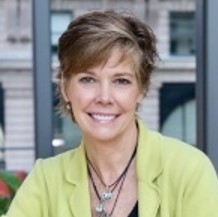 | Nancy O'Brien Co-founder and CEO Experience Happiness, LLC |
 | Michele Bildner, MPH, MCHES® Project Manager, CDC Foundation, Non-Infectious Disease Programs |
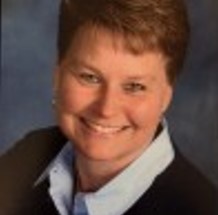 | Deanna Hokanson, MA Organizational Leadership & Certified THP (The Happiness Practice) Facilitator |
In its aim to improve population health and health equity, the CDC Foundation has identified that employers have the greatest impact on employee health and well-being. Managers and supervisors who work directly with employees, especially hourly wage earners who may have a chronic disease and stressful social conditions, are often the ones whom the employee go to for support. With leadership burnout, chronic disease, and mental health issues on the rise, the CDC Foundation has partnered with Experience Happiness, LLC, to develop and pilot the Happiness & Health Leadership Academy to inspire, equip, and empower leaders with methods and tools that allow them to increase their level of self-care, awareness, and compassionate action for themselves and the people they manage with chronic disease.
In this session, learn about this transforming nine-month leadership curriculum and its measurable impact on happiness and burnout at Washington County and Methodist Hospital - the two Minnesota based organizations selected to pilot this evidence-based behavioral health and leadership development solution.
Bend, Don't Break: Promoting mental wellness for youth in farm communities
Tues., March 26
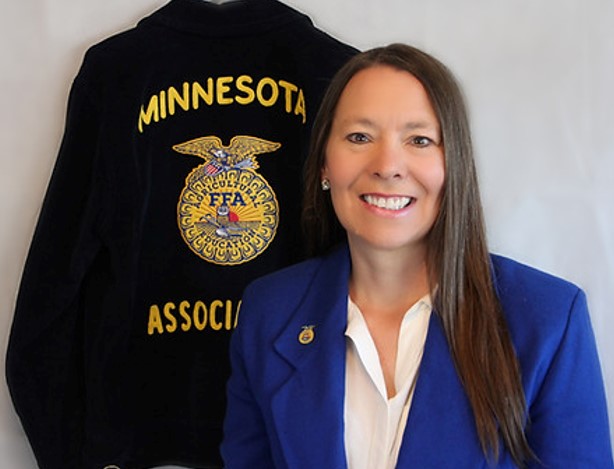 | Val Aarsvold FFA Foundation Executive Director |
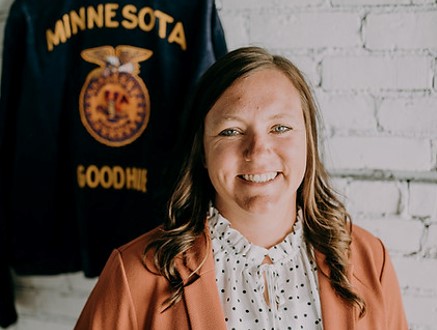 | Amanda Sommers FFA Foundation Program Coordinator |
FFA is a leadership program for 7th to 12th graders who are interested in agriculture and natural resources. In Minnesota, about 16,0000 students participate through more than 200 chapters. For the last several years, mental health issues have been a priority for student leaders in the organization.
In 2022 and 2023 the Minnesota FFA Foundation piloted a program called Bend, Don’t Break. This effort provided mini grants to 17 chapters across the state with support from the Minnesota Department of Agriculture and the USDA National Institute of Food and Agriculture. Students developed and conducted projects and activities to support mental wellness for youth, farmers, and their communities. The project offered communities the chance to develop unique approaches to addressing mental health needs, respecting that there is no one way to promote awareness and support.
Join us to hear FFA leaders and several students discuss the impact and engagement that this program generated and talk about how your organization could help catalyze more projects.
The power of stories to create change
Tues., February 27

Molly Sullivan (she/her/hers)
Minnesota Story Collective Coordinator,
Minnesota Management and Budget
Dustin Parks (he/him)
Minnesota Story Collective Results Management,
Minnesota Management and Budget
Calling anyone interested in the power of stories! MN StoryCollective is an exciting new way to engage with your community, local government, and state agencies. MN StoryCollective connects the voices of residents with those making decisions. MN StoryCollective is a way for you to share your experiences, generate ideas for change, and help support the changes at the local and state levels. Individuals, families, and groups are coming together to discuss the needs and ideas they are seeing in stories shared across the state. Local leaders across the state are helping to facilitate the gathering of stories and creating spaces for community meaning making sessions. Learn more about how you can be part of the MN StoryCollective and how you can utilize this resource in your work.
Regional nature networks support children’s access to nature
Tuesday, January 30
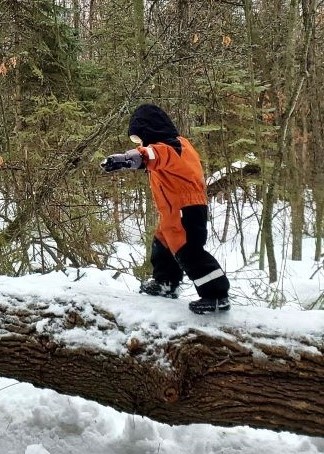 Laura Whittaker, Founder, Administrator, Teacher
Laura Whittaker, Founder, Administrator, Teacher
Wind Ridge Schoolhouse
Lorena Castillo Menk, Founder, Administrator, Teacher
Oak Ridge Nature School
Supporting a child’s experience in nature can be a gateway to joy and nature-based healing for a whole family and community. Increasingly, early childhood educators are exploring ways to support and increase experiences in nature. Often, providers and families have questions about how to get started or run into challenges. Nature NEST Collaboratives emerged in 2023 from the Minnesota Early Childhood Outdoors to help address these issues.
NEST networks are regional groups that bring together like-minded educators, parents, and others who support children to learn together and organize outdoor opportunities for children and families. Each NEST is led by a regional leader who was inspired to launch and support the network. Early childhood educators from home day care, centers, nature-based programs, and K-12 alike have joined together to participate in NEST groups for personal and professional development. Currently there are five Minnesota NEST groups in Avon, Carver County, Duluth, Nisswa, and Stillwater, with an additional three NEST groups in development.
Join us to learn about resources and how you can get involved or start your own regional NEST to support nature play and learning for children and families.
Digital well-being: responding to the urgent crisis with practical tools
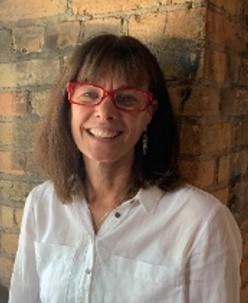 Maree Hampton, co-founder and co-executive director (she/her), Live More Screen Less
Maree Hampton, co-founder and co-executive director (she/her), Live More Screen Less
U.S. Surgeon General Dr. Vivek Murthy recently released an advisory on Social Media and Youth Mental Health (2023) with an urgent call to address concerns about technology on mental health, pointing especially to the significant mental health risks associated with widespread child and adolescent use of social media and technology. Though we often hear we are more "connected" than ever because of technology, loneliness rates have risen, and young people are spending significantly less time socializing in person. Dr. Murthy states, "Given the significant health consequences of loneliness and isolation, we must prioritize building social connection the same way we have prioritized other critical public health issues such as tobacco, obesity, and substance use disorders. Together, we can build a country that is healthier, more resilient, less lonely, and more connected."
Join us to learn details about new Digital Wellbeing resources, leadership opportunities, and trainings for Minnesota communities from LiveMore ScreenLess, an organization focused on primary prevention of the harms young people experience from technology. Hear youth voices on this topic and results from focus groups. Identify steps your community can take to apply these tools in your school, library, faith community, youth group, or other community space. You will leave with a deeper understanding about why digital well-being is essential to well-being and how you can promote it.
Community is medicine
December 6, 2023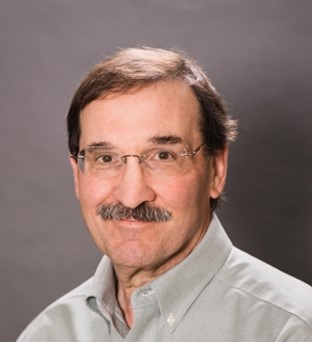 Bob Doppelt, coordinator, International Transformational Resilience Coalition
Bob Doppelt, coordinator, International Transformational Resilience Coalition
Community-led initiatives that use a public health approach to build population mental wellness and resilience can help to meet the urgent mental health needs increasingly generated from global warming and other collective struggles. Hear from Bob Doppelt, who conducted an intensive international research project for more than 2 years on how communities can build resilience in the face of climate change, also described in a new book Preventing and Healing Climate Traumas: A Guide to Building Resilience and Hope in Communities (Routledge Publishing).
During this webinar, learn how climate stresses, emergencies, and disasters are contributing to widespread distress and mental health concerns, how those stressors block solutions to the climate emergency, and why individualized mental health services cannot address these problems. Participants will gain an understanding about the five core foundational focuses essential for community-led initiatives to build population transformational resilience for the climate crisis, and how to integrate emission reduction and external climate adaptation with initiatives to build social, psychological, emotional, and behavioral wellness and resilience. Hear about examples of US and international community-led initiatives using this approach and their many benefits. Plus, learn about HR 3073/S 1452, the Community Mental Wellness and Resilience Act, that has been introduced in the US Congress and would support and fund community-based initiatives.
School Mental Health Training Initiative: Kognito
October 31, 2023
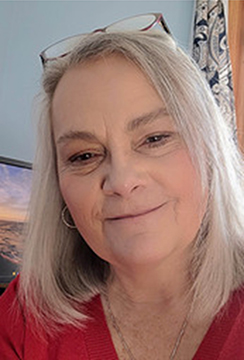 Stephanie Downey, MDH suicide prevention coordinator
Stephanie Downey, MDH suicide prevention coordinator
Schools and districts across Minnesota have access to a suite of online mental health trainings for staff and students called Kognito (Kognito Suicide Prevention and Mental Health Trainings for Schools).
The Kognito Friend2Friend student training suite provides game-based simulations that improve school climate by helping middle and high school students learn to have conversations and build skills to navigate difficult real-life situations which lead to positive outcomes both in and out of the classroom.
The initiative began in May of 2020 and provides free, unlimited access including implementation tools, discussion guides and technical support to roll out within a school or district. The Kognito trainings were created in collaboration with school and mental health experts and educators. They are research proven online simulations providing hands-on, interactive, and personalized practice-based learning through use of role-play conversations with virtual students and virtual parents/guardians. Participants learn to recognize signs of psychological distress and connect students to support services. The staff trainings meet educator suicide prevention training requirements in Minnesota statute.
A Deep Dive into the 2022 Minnesota Student Survey Mental Well-being Data
September 26, 2023
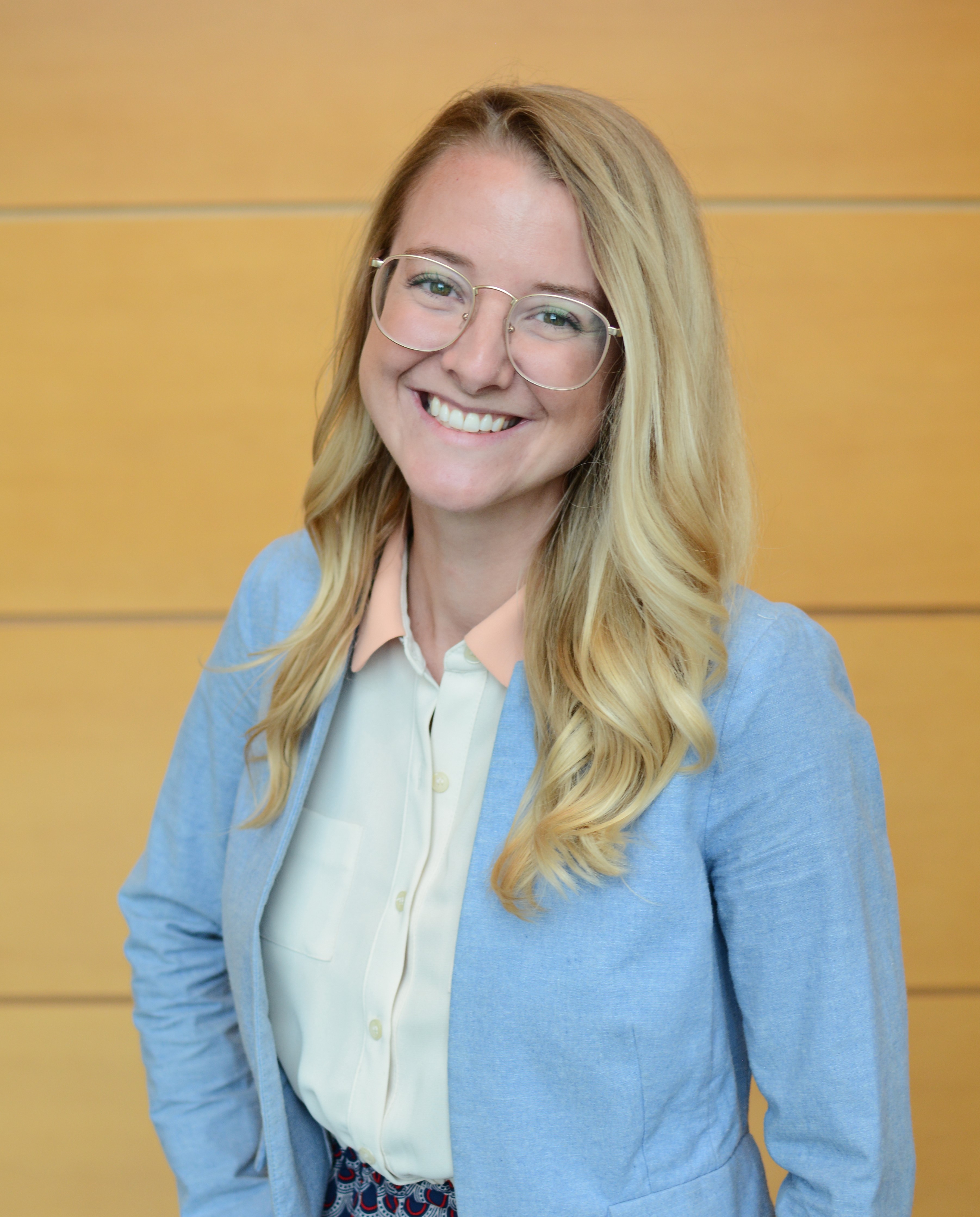
Molly Meyer, research scientist, Children and Family Health Division, MDH
The alarming increase in mental health concerns among youth in Minnesota and nationally has been broadly discussed, from depression and anxiety to suicide ideation. The Minnesota Student Survey captured a range of mental well-being components that can help us understand more about Minnesota student’s well-being and potential opportunities to promote mental health. Key components like positive identity, empowerment, social connections, and other protective factors that are critical for well-being will be discussed, including a composite mental wellbeing data measure that considers the cumulative effect of having (or not having) multiple well-being components. We will share data about trends, and differences across geography, racial identity, gender, and sexuality. There will also be an opportunity to discuss how communities are utilizing the current data, and what existing data needs or questions communities and organizations have to best leverage this valuable data resource.
Incorporating Restorative Justice in Schools
May 30, 2023
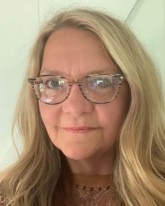 | Laraine Mickelson, Mickelson Consulting LLC Mediation, Consulting in Conflict Transformation, and conflict Management Systems Design |
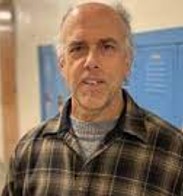 | Dave Perry, Cloquet Area Alternative Education Program (CAAEP) Special Education and Social Studies teacher Restorative Practices coordinator |
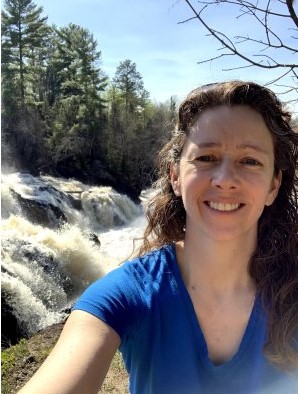 | Tara Lere, East Range Academy of Technology & Science Director |
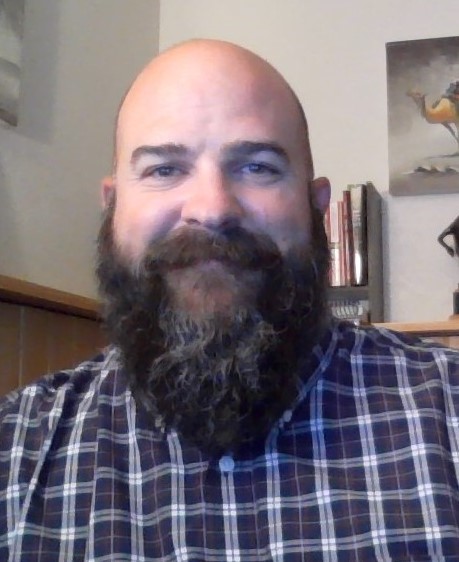 | Greg Campbell, Minnesota Department of Education Education Specialist, Safe and Supportive Schools |
Restorative Practices continues to emerge as a social science in schools, workplaces, community networks, and justice systems as a way to build and maintain relationships and attend to relational harm. This workshop will focus on restorative practices in schools as an approach to create positive and inclusive school environments. Speakers will discuss how schools and partners can:
- Embrace restorative philosophy as a whole-school approach.
- Consider a continuum of tools and strategies within a restorative framework.
- Develop meaningful accountability across all school stakeholders.
- Use Restorative Practices with adults in the school.
- Embrace students as change agents.
- How Restorative Practices align with trauma informed care.
In Minnesota, restorative practices are being implemented to various degrees in many schools statewide. Learn about how the represented schools have embraced and expanded Restorative Justice throughout the school and steps your school can take. Learn about resources and tools to help including the Minnesota Department of Education Implementing Restorative Practices list of resources and an emerging Restorative Justice Minnesota Inventory for community led Restorative Justice. The panel has a wide range of knowledge and experience in restorative philosophy in various school settings and will offer their time to share and answer questions.
An Introduction to Nature Rx and Forest Bathing
March 28, 2023
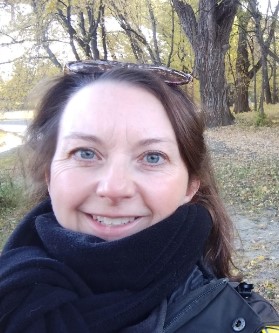
Sara Holger
Lead Interpretive Naturalist
Division of Parks and Trails
Whitewater State Park
Join Whitewater State Park Lead Interpretive Naturalist and certified Nature and Forest Therapy Guide, Sara Holger, to learn about the healing power of nature and how being outdoors can enhance physical, mental and spiritual wellbeing. We’ll explore the science behind what happens in our bodies when we spend time outdoors in nature and learn about the Park Rx movement to empower health care providers to prescribe time outdoors. We will discuss details about a Minnesota based Forest Therapy cohort, that will include mental health providers and other community members throughout Minnesota, and discuss how your community could support forest bathing. We’ll also learn some simple nature-based mindfulness activities you can try at home or at a nearby park.
Sources of Strength: Promoting Peer Leaders to Model Well-being
February 28, 2023
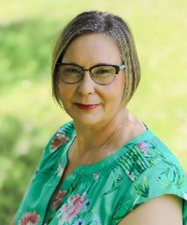

Kathy Magnusson, M.Ed.
Founder of Wildewood Learning Coaching and Consulting
Deb Cavitt, MS
Project Director, Presentation Specialist, Advocate and Coach
Minnesota Association for Children's Mental Health
Sources of Strength is an upstream school-wide mental health promotion program that boosts resilience and builds protection in the lives of young people to become better equipped to navigate life's natural ups and downs. Sources of Strength utilizes Social Network Theory to recruit diverse and influential students known as Peer Leaders to model positive behaviors such as help-seeking and healthy coping. The peer leaders team up with caring, connected, and positive Adult Advisors to instigate a Sources of Strength initiative in their school or community organization through a series of messaging campaigns targeted to increase protective factors and resilience-promoting behaviors in the lives of high school students. Sources of Strength outcomes include an increase in connectedness to adults, an increase in school engagement, an increase in the likelihood to increase positive perceptions of adult support and referring a suicidal friend to an adult. As of 2023, Sources of Strength is being implemented in four school districts (Moundsview, Moorhead, Brainerd, and Duluth) in Minnesota. Learn about how your organization can get people trained in this curriculum and how it fits with other initiatives in school and other settings to create a more comprehensive public health approach to mental health and well-being.
Building Social Connections and Policy Change through Stories and Art
January 31, 2023
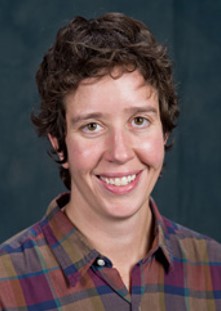
Andrea B. Crouse (They/Them or She/Her), Community Development Manager, Zeitgeist
We often say that data opens the mind but stories open the heart. Storytelling and Art are incredible vehicles to help communities identify common values and create spaces that promote social connectedness, civic engagement and leadership, healthy lifestyles, access to nature, the sense of awe, and more. The Healthy Hillside Team, led by Zeitgeist Center for Arts, a nonprofit arts and community development organization in Duluth MN, is engaging community members to assess and address health disparities in the Hillside neighborhood and inform a multi-year redevelopment project led by the City of Duluth. Over the past 2 years the Healthy Hillside team has had more than 11,000 conversations, helped proctor over 470 surveys, and facilitated the creation of over 175 community vision boards to help understand the strengths, values, visions, and concerns of their neighbors. Hear about strategies for engagement in addressing health equity and community development processes and the exciting examples of community visioning, engagement, and grassroots leadership development employed by the team for making structural and policy changes in their neighborhood.
